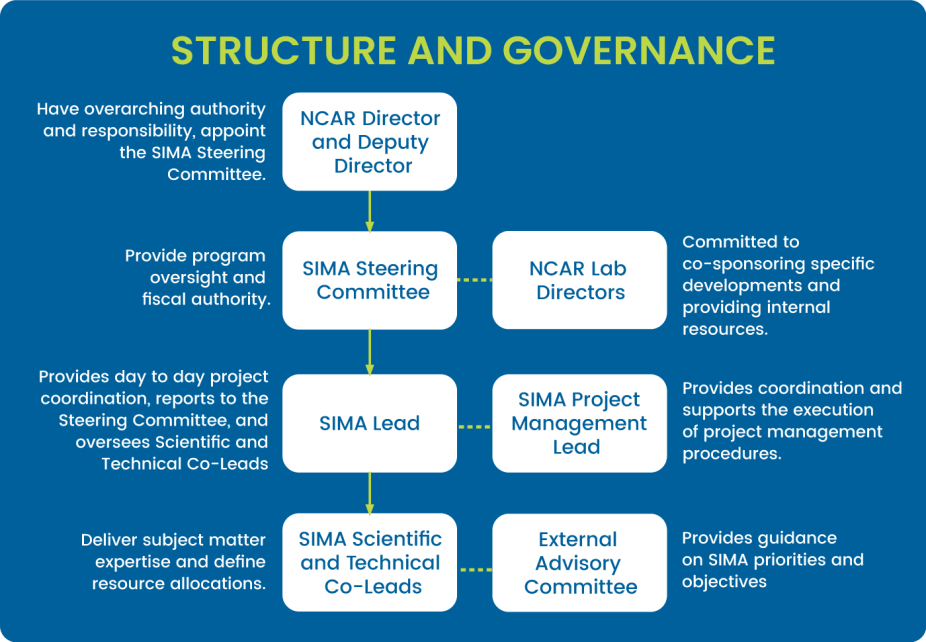Governance

In September 2022, the SIMA project implemented a new governance structure consisting of a project lead, scientific and technical co-leads, steering committee, and external advisory committee. The SIMA steering committee wrote a charter for SIMA that provides the scope of the project, including objectives, expectations, anticipated timeline, and outlines roles and responsibilities. The charter describes a two-pronged approach to SIMA development, with a focus on continued core infrastructure development and using a frontier science application to develop SIMA further.
Project Lead
- Mary Barth, Atmospheric Chemistry Observations and Modeling Laboratory — Chemistry
Scientific and Technical Co-Leads
- Michael Duda, Mesoscale and Microscale Meteorology Laboratory — Software Engineering
- Brian Dobbins, Climate and Global Dynamics Laboratory — Software Engineering
- Adam Herrington, Climate and Global Dynamics Laboratory — Climate
- Hanli Liu, High Altitude Observatory — Geospace
- Sheri Mickelson, Computational and Information Systems Laboratory — Software Engineering
- Bill Skamarock, Mesoscale and Microscale Meteorology Laboratory — Weather
Software Engineering Project Manager
- Jordan Powers, Mesoscale and Microscale Meteorology Laboratory
The steering committee provides program oversight and resources to the SIMA project. These six members provide expertise across Earth system science and computational science.
- Holly Gilbert, Director, High Altitude Observatory
- Thomas Hauser, Director, Computational and Information Systems Laboratory
- Jon Petch, Director, Climate and Global Dynamics
- Pieternel Levelt, Director, Atmospheric Chemistry Observations and Modeling
- Gretchen Mullendore, Director, Mesoscale and Microscale Meteorology
- Glen Romine, Senior Advisor to the NCAR Director, Steering Committee Chair
This advisory committee contributes guidance on SIMA priorities and objectives, and recommends opportunities to engage with the broader scientific community.
- Ave Arellano, University of Arizona
- Shuyi Chen, College of the Environment, University of Washington
- Yue Deng, University of Texas at Arlington
- Larry Horowitz, NOAA, Geophysical Fluid Dynamics Laboratory
- Slava Merkin, John Hopkins University Applied Physics Laboratory
- Dave Randall, Colorado State University
- Ryan Torn, University of Albany (State University of New York)
- Colin Zarzycki, Penn State